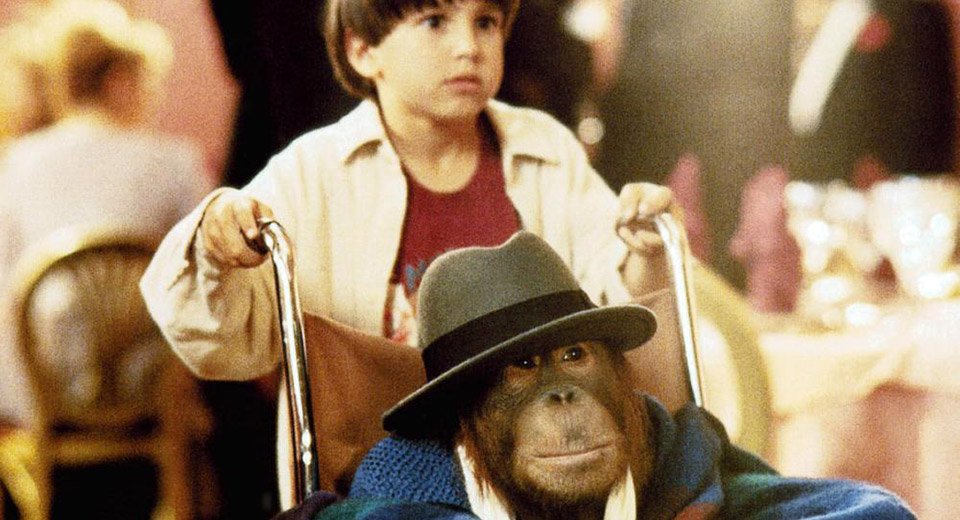
Built into the 1996 comedy Dunston Checks In, a film predominantly comprised of orangutan set pieces, is something like a comment on the pains of domestication. The lead boy (The Santa Clause's Eric Lloyd, a sentient OshKosh B'Gosh mannequin) spends his days and nights wandering the film's upscale hotel halls, orchestrating pranks against the snobbish middle-management and clientele. We are meant to understand his adolescent solitude, cut off from usual boyhood social roughhousing, as comparable to the experiences of a domesticated primate—the film's titular Dunston, a showbiz monkey turned jewel thief—and Lloyd's neurotic hotel manager father, a toupeed Jason Alexander.
The bestial family comedy of the Clinton years, a minor boom from Babe: Pig in the City to Monkey Trouble to MVP: Most Valuable Primate, was reinvigorated by a heightened public consciousness surrounding animal ethics and other ecological issues. By no means a new genre, with roots in nineteenth-century theater, colonial adventure novels, and vaudeville, it was breathed a new life with plots about animal trappers and forced servitude, a pressure valve for dealing with more thorny societal ills. These themes work as a meta-commentary for the real travails of animal actors: Sam, the eight-year-old who portrays Dunston, was born into a Miami tourist attraction before being sold to a Hollywood chimpanzee trainer at age 18 months. He was retired soon after the film, as puberty renders orangutans too muscular to handle, spending his later life encaged as a breeder and later a rescue at the Society for Great Apes.
Director Ken Kwapis, a veteran television director known best for helming the majority of season 1 of The Larry Sanders Show, once quipped that Dunston "was a natural sequel after working with Garry Shandling." The film is in fact as ripe a culture war time capsule as his Tim Miller Sanders episode or the Kevin Bacon rom-com He Said, She Said (co-directed with wife Marissa Silver), albeit in more sublimated and rewarding ways. As computerization reared its head and political correctness entered the public lexicon, the monkey became a synecdoche for discontent across the ideological spectrum—roughly the Venn diagram center of Donna Haraway, the Unabomber, and the Bloodhound Gang's "The Bad Touch" music video. That Kwapis is currently directing a biopic on The Shaggs, the New Hampshire sisters who became the stuff of art-brut rock legend, a captivity tale of an entirely different sort, is too rich.


